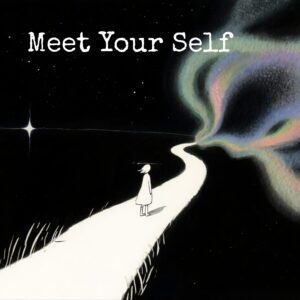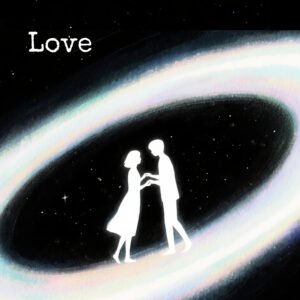L'astrologia, nel suo nucleo, è un sistema simbolico per comprendere la ricchezza dell'esperienza umana. Mentre il Sole è spesso associato all'identità, alla volontà cosciente e alla ricerca dell'espressione di sé, la Luna nell'astrologia occidentale scava nelle profondità del sé emotivo. Rivela come ci sentiamo, nutriamo e rispondiamo alle fluttuazioni della vita. Spesso descritta come "l'anima" del tema natale, la Luna custodisce indizi sulle nostre reazioni istintive, sui nostri ricordi e sui nostri bisogni inconsci. In questo articolo, esploriamo la profonda influenza della Luna, le sue associazioni mitologiche e psicologiche, la sua posizione e i suoi aspetti nel tema natale e il suo ruolo vitale nel plasmare la nostra vita interiore.
La Luna astronomica e simbolica
A differenza del Sole, che arde di una luce fissa e rivolta verso l'esterno, la Luna è riflettente, ciclica e mutevole. Le sue fasi crescono e calano, rispecchiando il flusso e il riflusso delle emozioni umane. Nel cielo notturno, la presenza argentea della Luna ha ispirato poeti, sognatori e mistici per secoli. In astrologia, questo simbolismo si traduce nella natura mutevole dei nostri stati d'animo, istinti e io privato.
La Luna è il "pianeta" più veloce in astrologia (sempre secondo il termine tradizionale), con un'orbita completa dello zodiaco in circa 28 giorni. Questo rapido movimento sottolinea il legame della Luna con l'immediatezza dei sentimenti e la natura transitoria degli stati emotivi. Mentre l'energia del Sole è stabile e duratura, quella della Luna è fluida, reattiva e ricettiva.
Radici mitologiche: la dea lunare
Nel mito, la Luna è spesso associata a potenti dee: Artemide e Selene nella mitologia greca, Luna nella tradizione romana e Iside nella tradizione egizia. Queste divinità incarnano qualità di intuizione, protezione e fertilità. Presiedono ai cicli, ai misteri e agli aspetti nascosti della vita. La Luna, quindi, rappresenta il principio femminile in astrologia, ma non si limita al genere; parla al lato ricettivo, protettivo e istintivo di ogni persona.
L'archetipo della madre lunare è centrale. Offre conforto, guarigione e senso di appartenenza. La posizione della Luna nel tema natale rivela ciò che ci conforta, ciò che cerchiamo per sicurezza e come ci prendiamo cura di noi stessi e degli altri.
La Luna nel Tema Natale: Emozioni, Bisogni e Istinti
Mentre il Sole descrive "chi siamo", la Luna descrive "come ci sentiamo". Il segno della Luna (il segno che occupava alla tua nascita) rivela la tua natura emotiva più profonda. È la parte di te che reagisce automaticamente, spesso al di sotto della consapevolezza cosciente. La Luna governa le abitudini, i modelli di educazione e le risposte emotive plasmate dalle prime esperienze di vita.
Ad esempio, una Luna in Cancro (il segno che governa) suggerisce una maggiore sensibilità, un profondo bisogno di sicurezza emotiva e un approccio empatico e protettivo. Una Luna in Capricorno può esprimere le emozioni con più cautela, cercando stabilità attraverso la struttura e il successo. Ogni segno modifica lo stile di sentimento, la cura e la ricerca di conforto della Luna.
La posizione della Luna in casa chiarisce ulteriormente dove si concentrano i bisogni emotivi. Una Luna in settima casa indica l'importanza della collaborazione per il benessere emotivo. Nella quarta casa, la casa e la famiglia sono il fondamento della sicurezza.
Gli aspetti della Luna: interazione dei sentimenti
Gli aspetti della Luna, ovvero le sue relazioni con gli altri pianeti, influenzano l'espressione emotiva e i bisogni. Un aspetto armonioso tra Luna e Venere può favorire la serenità nelle relazioni e nella cura di sé. Aspetti difficili, come una quadratura con Marte, possono suggerire instabilità emotiva o tensione interiore tra desiderio e benessere.
Una congiunzione Luna-Plutone potrebbe indicare intensità emotiva, profondità ed esperienze trasformative. Un aspetto Luna-Mercurio può rendere una persona particolarmente eloquente riguardo ai sentimenti o, al contrario, creare una tensione tra pensiero ed emozione.
La Luna e la Memoria: il Passato nel Presente
La Luna è strettamente legata alla memoria e al passato, in particolare all'infanzia e alle dinamiche familiari. Astrologicamente, la Luna rappresenta spesso la madre o la figura di chi si prende cura di noi, così come il clima emotivo dell'ambiente in cui viviamo. I nostri schemi emotivi istintivi spesso risalgono a queste esperienze formative.
I modelli lunari inconsci possono persistere fino all'età adulta: abitudini di auto-consolazione, modi di reagire allo stress e preferenze per il comfort. Prendere consapevolezza della posizione e degli aspetti della Luna può illuminare il condizionamento emotivo, aiutando a trasformare le reazioni inconsce in risposte consapevoli.
La Luna e il Subconscio: Sogni e Intuizione
La Luna è la porta d'accesso al subconscio, ai sogni e all'intuizione. Governa l'immaginazione e il mondo dei sentimenti difficili da esprimere. Molti artisti, scrittori e guaritori hanno Lune prominenti nei loro temi astrali, traendo ispirazione dalla fonte della vita interiore.
La Luna governa anche l'intuizione, un "sentimento viscerale" o una conoscenza sottile che ci guida anche quando la logica vacilla. Fidarsi della Luna significa imparare ad ascoltare questi segnali interiori, onorando la saggezza del corpo e delle emozioni.
Transiti e progressioni lunari: cicli emotivi
Il rapido movimento della Luna crea un ritmo di cicli mensili, noti come ritorni lunari, quando la Luna in transito ritorna alla sua posizione natale. Questi periodi possono evidenziare temi emotivi, evocare ricordi o segnare punti di svolta nella crescita personale.
I principali transiti e progressioni lunari, come il cambio di segno o di casa della Luna Progressa, segnalano cambiamenti significativi nell'attenzione e nei bisogni emotivi. Queste transizioni sono momenti di riflessione, cura di sé e adattamento a nuove fasi della vita.
La Luna nelle relazioni: compatibilità emotiva
In sinastria (astrologia delle relazioni), le connessioni lunari tra i temi astrali rivelano come due persone si nutrono, confortano e rispondono ai bisogni reciproci. Aspetti lunari armoniosi possono favorire intimità, empatia e ritmi emotivi condivisi. Contatti lunari difficili possono portare incomprensioni, sbalzi d'umore o bisogni non corrispondenti.
Comprendere la propria Luna e quella degli altri può accrescere la compassione e favorire legami emotivi più sani.
Integrare la Luna: onorare la tua natura emotiva
Vivere con consapevolezza lunare significa accogliere le proprie emozioni: ascoltare i propri bisogni, onorare i propri istinti e concedersi conforto e sostegno. La Luna insegna il valore dell'auto-cura, dell'onestà emotiva e del potere curativo della connessione. Sintonizzandosi con la Luna, è possibile creare una vita interiore più sicura, autentica e appagante.
[Estratto]
Questo articolo esplora il ruolo essenziale della Luna nell'astrologia occidentale, rivelando come essa plasma la nostra natura emotiva, i nostri istinti e i nostri bisogni inconsci. Dalle sue radici mitologiche e dal suo significato simbolico alla sua posizione nel tema natale e al suo impatto sulle relazioni, la Luna emerge come una chiave vitale per comprendere il paesaggio interiore del sé.



